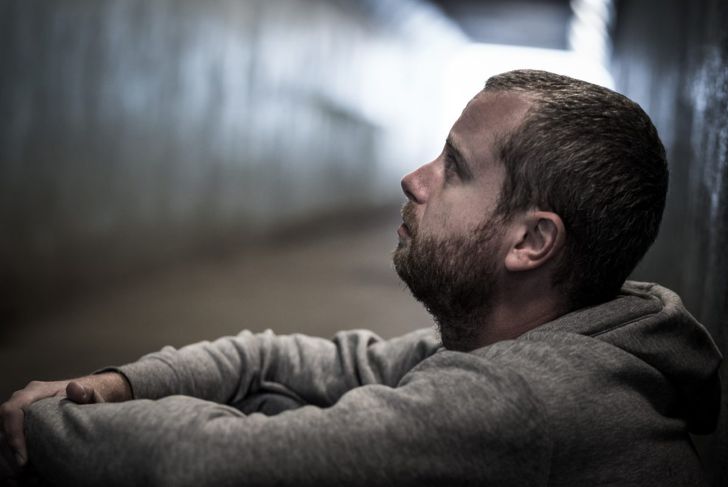Addiction is engaging in behavior for perceived benefits despite the possibility of dire consequences. This behavior commonly applies to drug and alcohol use. Addiction is complex and involves many factors related to the brain and behavior, including motivation, memory, reward, and reinforcement. Addicts experience intense cravings and a lack of control, which disrupts their daily lives. However, researchers report that those who manage their addiction and stay clean for five years are no more likely to engage in addictive behaviors than the general population. Management of addiction is possible, but it is a difficult road, and relapse is common.
What Is a Relapse?
Stopping drug or alcohol use is not easy. People who are trying to get clean can relapse, which means they return to drug use. This is a normal occurrence on the way to recovery. Some people relapse multiple times before they are able to successfully manage their addiction. If someone relapses, it is very important that they return to treatment quickly. Relapse often brings feelings of guilt and anger that make it more likely for someone to start using again and keep it a secret.
Cure vs Treatment
Addiction is like any other chronic disease: it is manageable, but there is no cure. Research on the science of addiction has led to treatment methods that help people work successfully toward recovery. Relapse does not mean that treatment is not working; it is just a part of the process. In fact, studies show that relapse rates for addiction are similar to those for asthma and hypertension. When someone stops following their treatment plan, they are likely to relapse.
Effective Treatment
For some drug addictions, including dependencies on alcohol, nicotine, and opioids like heroin or fentanyl, medication can help with recovery and is considered a first-line treatment. Detoxification drugs are available, too. There are currently no medications for addictions to stimulants. Regardless of the substance, most people require behavioral therapy or counseling in conjunction with available medications for successful treatment. Without a proper treatment plan, relapse is more likely.
Therapy
Behavioral therapy is helpful for people in treatment for drug addiction. It aims to help them learn how to handle and successfully navigate stressful situations without turning to drugs. Cognitive-behavioral therapy can also help people recognize triggers and learn to avoid them. These skills are extremely helpful when it comes to avoiding relapse as they teach practical, applicable skills.
Risk Factors
For those who have successfully navigated a treatment program, the first 90 days is the most significant time, during which relapse is more likely. Experts believe this is due to increased stress and over-confidence that everything is under control. This is also the period when people in recovery are exposed to some of their triggers for the first time since beginning treatment.
Stages
Experts believe that relapse is a process, and there are identifiable stages that can help people recognize when they may be at risk. The first stage, emotional relapse, happens before the person has even considered using again but has begun to lose focus on treatment, self-care, and healthy habits. Next is mental relapse when there is a real struggle between the desire to use and the desire to stay clean. People may romanticize former drug use and relationships, but proper coping skills can help resist returning to drug use. The third and final stage is physical relapse when the person actively begins using again.
Triggers
Triggers are the people, places, and things that can cause someone to relapse. They are often reminders of past drug use and can be enough to restart old behaviors. Research done on rats in Japan indicated that triggers are more likely to bring on a relapse than casual drug use, though it is helpful to keep in mind that this animal study may not translate to human subjects, and experts do not recommend using drugs at all during or after recovery from addiction.
Remission
It is essential for those recovering from drug abuse to remember that relapse is common. Thinking in absolutes in recovery — 100% success means no relapses versus 100% failure means relapse — can get in the way of the changes that the person needs to make to ultimately put their disease into remission. Learning from a relapse is important; identifying triggers and feelings that led up to the relapse can help ensure proper coping mechanisms are put in place for next time.
Predictors
One study identified four risk factors to predict relapse in people recovering from alcohol addiction: less education, low chances of employment, more life-long problems with alcohol, and more frequent consumption. Studies also show that those who start drinking again tend to have fewer personal resources, rely on alcohol to reduce stress, and do not ultimately see their alcohol use as a problem.
Is Treatment Effective?
Treatment for addiction and to prevent relapse is effective if the approach is right and the person is willing to commit. Many people consider treatment to have failed if a relapse occurs, but this is not true. If someone with hypertension has increased blood pressure, a doctor alters the treatment plan and monitors the patient to make sure the new approach is working. It is helpful to think of addiction in the same way. For treatment to be successful, it has to be ongoing and modified as needed. A relapse is a sign that treatment needs adjusting, not that it is unsuccessful.

 Home
Home Health
Health Diet & Nutrition
Diet & Nutrition Living Well
Living Well More
More




















